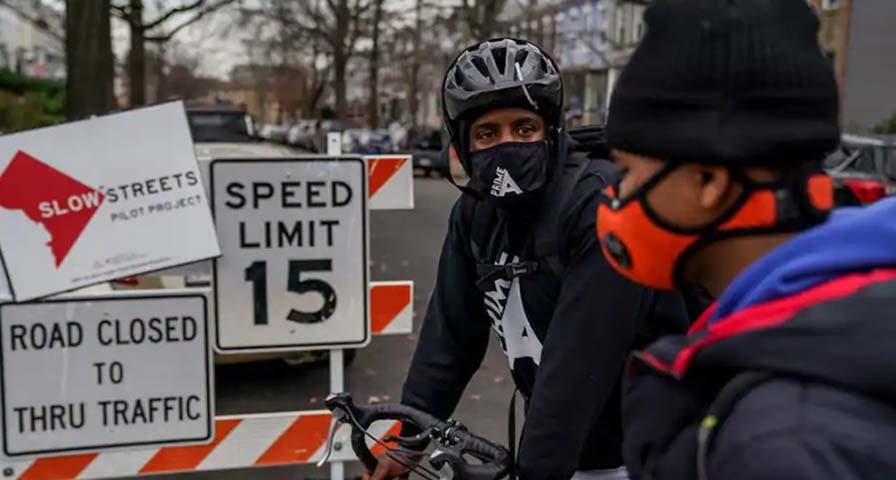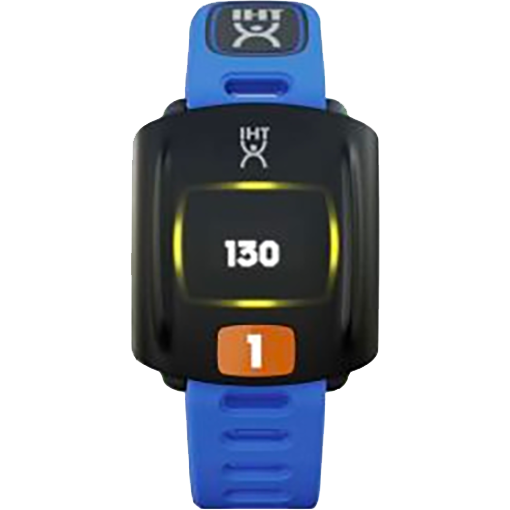Originally published Jan. 2, 2021 by The Washington Post.
By Hannah Natanson, Perry Stein and Donna St. George
The year 2020 was tough for everyone — and unprecedented for the U.S. educational system, which was forced to go online overnight, with innumerable glitches at the start and long-term consequences that are still becoming clear.
But while school districts grappled with health metrics and decisions to open or close buildings, hard-working teachers across America found ways to reach their students. Ideas ran the gamut — making art from laundry, taking bike rides as a class, teaching from an old treehouse.
The Washington Post gathered stories of creative teaching from throughout the Washington region. The anecdotes collected below do not represent everyone’s experience, but they highlight notes of grace — and offer sparks of hope.
'It was a leap of faith'
When schools closed in March, Alex Clark’s students at Dunbar High School in Northwest Washington were just beginning to understand the benefits of their physical education class. Clark, who works after-hours as a fitness instructor at a trendy exercise studio in the District, was teaching his music-blaring, high-intensity workout class to his high school students. He took his students on field trips to fitness studios in the city. They loved it.
So during a virtual spring semester, he posted workouts to his Instagram page so students could participate whenever they wanted.
But it wasn’t the same, and he knew some students were starting to lose interest.
“I did not want to lose the momentum,” Clark said.
Two Dunbar students were fatally shot this past summer, and Clark wanted to ensure that his students had a way to connect with one another, to boost their mental health. He looked for activities that could keep them away from the often high-crime neighborhoods where many Dunbar teenagers reside.
He decided he would take his students on socially distanced bike rides across the city. “It was a leap of faith. I got extremely nervous. I was trying to find a way to connect with kids,” Clark said.
Clark started an online fundraiser to pay for bikes. He raised more than $10,000, and neighbors donated dozens of bikes and helmets for the rides. The club became part of Clark’s nonprofit organization, Prime Ability, which connects students from low-income families to fitness opportunities outside of sports like football and basketball.
And students came for the bike rides. And more students. It became so popular that students brought friends and siblings from other schools. At times, more than 50 students showed up. Volunteers from the city also came to help make sure the large group stayed safe on the ride.
Every Monday, Wednesday and Friday afternoon, they biked to a different neighborhood in D.C. They rode trails through the city that many students never knew existed. When Clark wanted to teach them about resilience, he took them through the hilly streets of Georgetown.
“If you bring your whole neighborhood and we have enough bikes, that’s awesome,” Clark said. “Anything that can keep you away from something that can tempt you to do something that can impact the rest of your life.”
Now that it’s winter and the sun sets early, Clark has stopped doing the weekly rides. But he’s found other ways to keep his students engaged and cycling the city. He invited students to a weekly entrepreneurship class for which they rode their bikes uptown from Dunbar to the gym where Clark works, Sweat DC. The students met with the owner of the gym and the owners of a nearby bar, Hook Hall, and the bagel shop Call Your Mother Deli to learn what it takes to run a business.
Last month, he helped his students fulfill their required community service hours. A group bicycled from Dunbar to pick up food at Call Your Mother Deli, which they then transported on their bikes to Martha’s Table, the charity and volunteer center in Southeast D.C. During a holiday season in the middle of the pandemic, they distributed food to residents in need.
Learn How the IHT Spirit System Supports School Wellness Programs:




